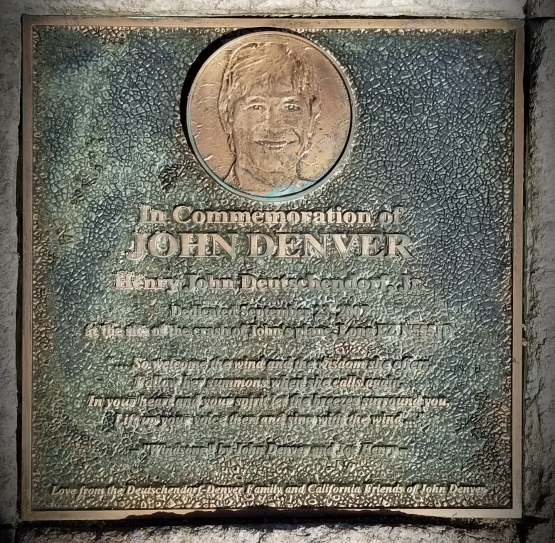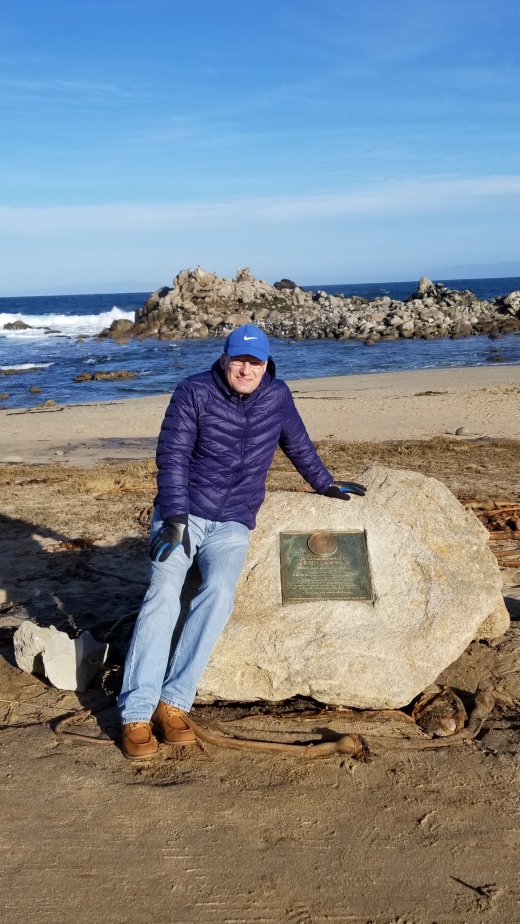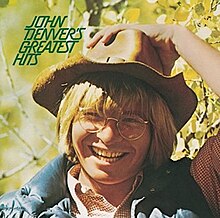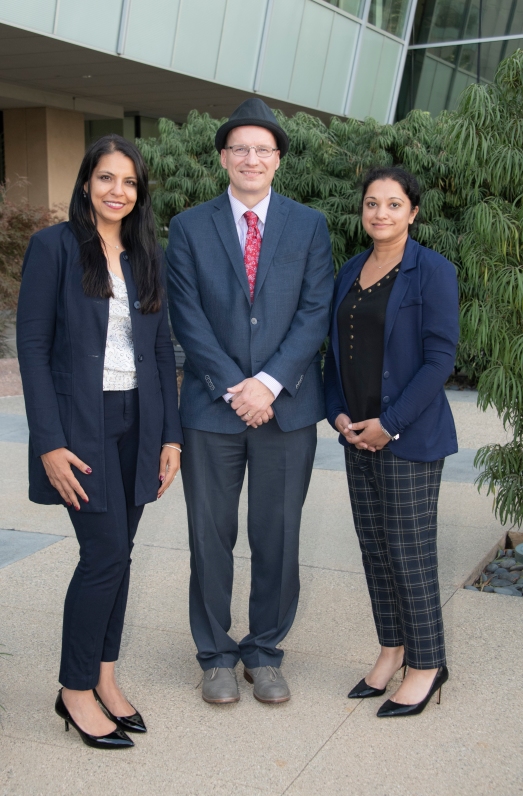“What are we going to do with him?”
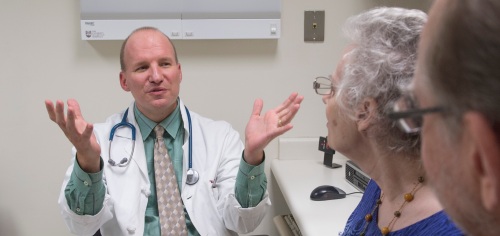
I couldn’t help overhearing the oncologist talking to his team across the small space in our provider’s work room. An unusual work room, not because of what it looks like, but because of who’s in it. I am a geriatrician, and I work directly alongside my oncology colleagues in this room. I’m “embedded” in the oncology clinic, a bit like a medic among the soldiers in a war zone. They are constantly “fighting” the War Against Cancer—and I am always caring for the patients who are damaged in the fight. They are “saving lives” and I’m “saving” the quality of those lives—often even helping bring those lives to an appropriate close. I had created this clinic just for this reason.
My colleague went on …
“I don’t know. He needs treatment … his prostate cancer is metastatic … he’s losing a lot of weight … but he’s homeless. How do we treat a homeless guy? In the middle of a Chicago winter? On a Friday? Even if we admit him to the hospital for a ‘social admit,’ what are they going to do with him on a weekend? And then, he’ll be back out on the street, anyway.”
I listened while pretending not to. I have learned not to jump into the fray when oncology is wrestling with a problem. To avoid the “what do you want” look, complete with the eye-rolling. I kept listening, but without even looking.
“It’s a crazy story! He is an educated guy, married, recently retired, and then he got cancer. While he was trying to figure out what to do, his wife took most of his savings and left. He was hospitalized, placed in an assisted living facility afterwards for rehab, but hated it and left. Then he was in a shelter, and he left that because of the food. Now he’s homeless, with no money, and he’s got metastatic cancer. And his other family members don’t help out.”
“So what do we do?” asked the physician assistant. Long pause—nobody had an answer. “Why don’t we ask Dr. Dale? I think the patient’s kinda old—maybe geri can help.”
An opening. An opportunity.
“Is there something I can help with?” I asked.
Although I knew the story already, I patiently listened to it again.
Then, despite my hopelessly full clinic schedule, I went to see Mr. Lessman (not his real name). A thin, bony African American man sat there, with a bushy afro-style cut, shading from dark at the skull to white at the tips. He was disheveled, his clothes were torn and dirty, and his dentition was terrible. He smelled awful, as one would expect from a man with metastatic cancer living on the streets of Chicago’s South Side in the middle of the winter.
But he spoke carefully, articulately and precisely—no evidence of cognitive impairment. In fact, he talked exactly like my university colleagues; which was appropriate for a man with advanced education. And he took careful notes in a spiral binder he carried, asking me for clarification for the pronunciation and spelling of all the medical terms. I felt a bit like a student in a seminar.
I went back out to see my oncology colleague in the work room, and I told him I thought we could help. I was met with a wry, skeptical shrug.
But I knew something he didn’t: I had Erica on my side, who I was sure could help us. Because she’s a geriatrics hero.
———————–
I met Erica Riley when I decided to work at our inner city long-term care facility. She worked there, as a nurse, serving as the university liaison for our patients discharged from the hospital onto one of the floors. During my fellowship training in geriatrics, I found working in nursing homes bureaucratic, intimidating, and frustrating—and I vowed at graduation not to do it again. But when the faculty member serving as the medical director of this facility left precipitously, largely in response to being unable to effectively change the facility’s care quality, there was nobody else to step in. So, even though I was a researcher and the section chief, I decided to jump in myself.
Temporarily, I thought.
This particular nursing home is located in the middle of one of the poorer neighborhoods on Chicago’s South Side. Like many such facilities, it struggles financially, trying to survive on a combination of patients covered by Medicare, Medicaid, or no insurance at all. Most of the patients here don’t have other choices, and, like the people living in the neighborhood, almost all of the patients are African American. It is the kind of facility health policy experts like me write about—in the abstract—all the time, and usually in a vaguely negative way. Like many such experts, I had actually never worked in such a facility. And, I was sure, the people who worked there would recognize this right away. Erica Riley, LPN, certainly did.
When one meets Erica, one is immediately struck by her intensity. At the time I met her, she had been at the facility for two years. I have rarely met someone who is as committed to the care of older adults as Erica. She worked for five years in a surgical unit—but she loved working with older adults so much that she quit that comfortable job to work in long-term care.
She once told me, “I always desired to take care of geriatric patients. It reminds me of taking care of my mom when I was young and she was sick.” She was recruited to this particular facility specifically to run the University Program we were building, brought on board by an administrator who knew how dedicated and hard-working she was.
Erica is one of the most genuine healers I’ve seen; she has remarkable instincts for knowing just what a patient needs. She describes her own motivations this way: “Helping someone to get stronger mentally, physically, and emotionally when they can’t help themselves” is what drives her. “In school, we were taught not to get emotionally attached to patients, but for me that’s hard to do,” she says. “When I take care of patients, I feel like they are my family. Being there to listen, nurture, and provide excellent care means the world to patients—just to have someone that genuinely cares.”
Caring for the patients at our facility, one is constantly struck by how many of them count on, believe in, and trust “Miss Erica” to make sure they get the best care.
She also reflexively embodies the ethos of team care. She describes how much she enjoys working with our university team this way: “Coming together to provide consistency and continuity of care is great. Knowing that we can work together to provide exceptional care means everything to me. My being able to change the lives of our patients means a lot.”
The only way a nursing facility can maintain a constant culture of caring is through its nursing staff. Erica is the spiritual center for the facility; she ties the patients to the physicians and the rest of the care team, making it possible for us to provide excellent care in difficult circumstances.
As I said, I had a “secret weapon” for our fight against cancer. Erica, a geriatric hero.
—————-
Back in clinic, I told my oncology colleague, “Don’t worry. Let’s get Mr. Lessman admitted to our long-term facility. We’ll get his situation stabilized, straighten out his medications, get him eating, and then have him come back to clinic in a few weeks. Then you can decide if he can be offered treatment for his cancer.”
“Don’t we have to admit him to the hospital first? Isn’t that the rule?”
“Not necessarily. I’ll talk with the administration. I think it’s better to get him into the facility and get this started immediately. A weekend in the hospital won’t be as helpful.”
“Can he get some IV fluids there?”
“Sure.”
I texted Erica on my phone, told her about Mr. Lessman, and explained what I had in mind. “What do you think?” I asked.
“Of course! No problem.” No hesitation. “Give me a few minutes.”
Sure enough, within the next 30 minutes, an admission was arranged. I turned to my oncology colleagues and told them what was happening. They were impressed, bordering on amazed. They hadn’t seen anything quite like it. I could tell they were skeptical about what could actually be done. But I knew I had Erica on my side.
————-
Our multidisciplinary team in the nursing home met for rounds the following Monday. It’s led by Erica. For appearances, the team pretends I run the meeting, but everyone knows Erica really does.
“How’s Mr. Lessman?” I asked.
“He’s OK,” Erica reassured me. “Except for one thing. He won’t eat anything.”
“Why? Is he nauseated? Or does he have abdominal pain? Or constipation? What’s the matter?”
“No, none of that. He just doesn’t like any of the food. He’s very…” Erica had a funny grin on her face. “… particular.”
I frowned. “What does that mean?”
“He only wants grilled cheese sandwiches. No butter. White bread only. Nothing else. For every meal. And I’m being told we can’t do that here.”
“Let me talk with him. Then let’s talk with the kitchen and administration.” I talked to Mr. Lessman; the nutritionist talked with the kitchen; Erica talked with administration. As usual, Erica was exactly right, mostly because she had worked much of the weekend, although she wasn’t scheduled to do so. Without giving lots of details, Erica let us know that Mr. Lessman had quite a few of these personality quirks. And he had a long story to tell about his personal situation. He also had a notebook full of questions. And all of it fit together, in the way individual lives do, full of personal nuance, touched with tragedy, and played out over a lifetime to reach this point. A full life, lived fully. Learning about such lives is one of the joys of geriatrics. It’s also essential to helping patients improve.
As Erica tells it, Mr. Lessman “is one of the patients that’s dear to my heart. His appetite is extremely poor due to his diagnosis, but by sitting by his side, communicating with him, and encouraging him not to give up, it has made a tremendous change. The smallest acts of kindness can mean so much. … He has now started to consume more food, his appetite has increased, and he has gained weight. He has become a lot stronger.”
Which he has. We give him grilled cheese sandwiches all day long. He takes meticulous notes in his notebook, and he asks me questions each week. We have helped him straighten out his finances, and he has decided to stay at the facility long-term. We provide him transportation to his oncology appointments. And Erica makes sure everything is taken care of.
——————–
A few weeks later, Mr. Lessman returned to our Friday clinic is see the oncologist. I heard about it from my colleague, who came into the workroom, laughing and carrying on.
“Hey, Mr. Lessman is back. He looks fantastic! We’re going to treat him!”
“Great!” I said. “I thought he was a goner. You did a great job with him.”
“Not really me. The people in the facility are responsible, especially our nurse, Erica.”
“You know what?” My oncology colleague was laughing.
“What?” “Geriatrics saved his life!” More who-would-have-believed-it laughter.
I never thought I’d hear that phrase, especially coming from the mouth of an oncologist.
————————-
I’ll give Erica the final word: “This warms my heart; this is what nursing is about. Healing the sick and making the weak stronger physically, emotionally, mentally, and spiritually. This is what our program’s about. To have such dedicated physicians to care for our patients is unknown in our community. Our patients deserve better, and this program is a great start.”
This essay won the John A Hartford Foundation‘s “Heroes in Geriatric Care” essay contest in 2013.
